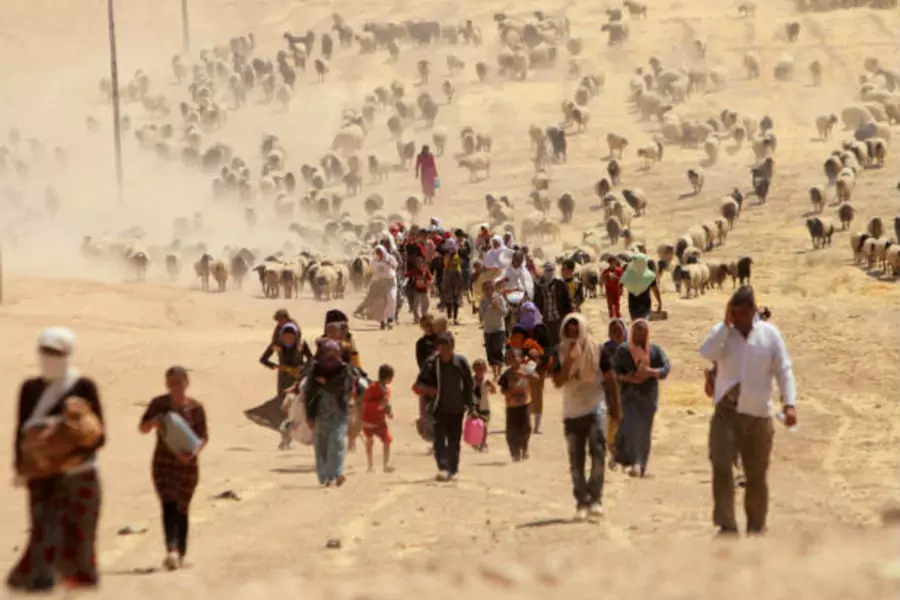Women Around the World: This Week

More on:
Welcome to “Women Around the World: This Week,” a series that highlights noteworthy news related to women and U.S. foreign policy. This week’s post, covering from June 10 to June 18, was compiled with support from Becky Allen and Anne Connell.
UN declares Islamic State abuses of Yazidis constitute genocide On Thursday, UN investigators announced that the self-proclaimed Islamic State group’s campaign of killing, abduction, and sexual enslavement of the Yazidi ethnic minority in Syria and Iraq amounts to genocide. In a 40-page report, the UN advanced a legal argument that the planned and systematic nature of documented abuses of Yazidis falls under the 1948 UN Convention on the Prevention and Punishment of the Crime of Genocide. In August 2014, thousands of Yazidi men, women and children—including hundreds of disabled and elderly—were killed; in addition, over thirty-seven mass graves have been found near Sinjar, and an estimated three-thousand Yazidi women and children are still held in sexual slavery. Yazidi kidnapping survivor and human rights activist Nadia Murad, who offered testimony to the UN Security Council in December 2015, has led efforts to bring political attention to these abuses and galvanize international support for future prosecution of perpetrators. In addition to the UN, the U.S. government, European Parliament, Parliamentary Assembly of the Council of Europe, and the U.K. House of Commons have all recognized that the Islamic State has carried out acts of genocide against the Yazidis. The UN report recommends that the Security Council refer the case to the International Criminal Court (ICC) for prosecution.
Women’s inclusion in South Sudan transition South Sudan recently formed a transitional government that tenuously unites four rival factions, seeking a resolution to an intrastate conflict that has killed tens of thousands of people and displaced more than 1.6 million since 2013. Women’s groups responded by calling for inclusion in all branches of the future government, as well as in the Commission for Truth, Reconciliation, and Healing. Last month, over five-hundred women from across the country gathered at a two-day peace conference in Juba, where women were briefed by political leaders about the status of South Sudan’s peace agreement, signed in August 2015. At the conference, participants adopted a seven-point agenda with recommendations on how to implement a gender-sensitive peace agreement. Chairwoman of the South Sudan Women’s General Association Zeinab Yassin suggested that “[i]t is the women of South Sudan who can give the peace because we never take up any guns to shoot anybody. We ask for peace and unity of our people.”
U.S. Senate votes to require draft registration for women On Tuesday, the Senate passed a $602 billion defense bill that included an amendment requiring women to register for the selective service. The provision would apply the same requirements to young women as are now applied to men, mandating that women turning eighteen in 2018 or later register for the draft. This step follows the Pentagon’s December 2015 decision to lift the ban on women serving in combat roles in all branches of the U.S. military. Since that time, many members of U.S. military leadership have voiced support for the inclusion of women in the draft, including the commandant of the Marine Corps, Gen. Robert Neller, the chief of staff of the Army, Gen. Mark Milley, and U.S. Senator and veteran John McCain, who suggested that “every single leader in this country, both men and women, members of the military leadership, believe that it’s fair since we opened up all aspects of the military to women that they would also be registering for selective service.” The issue of female draft registration will now proceed to the House. In the meantime, the composition of U.S. fighting forces is shifting: the Army recently announced the commissioning of twenty-two women as infantry and armor officers for the first time ever, and two women made history on Wednesday by becoming the Marine Corps’ first female field artillery officers.
More on:
 Online Store
Online Store